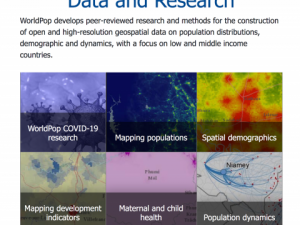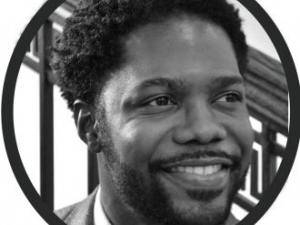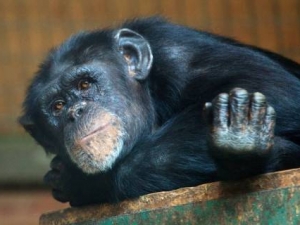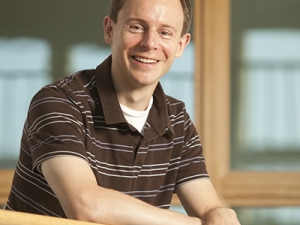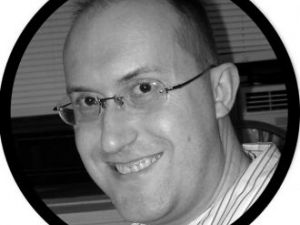The following interview is reprinted from Duke Business Oriented Women’s Alumni Spotlight series. Janvi Shah is a first-year student at Harvard Business School in Cambridge, MA. Originally from the San Francisco Bay Area, she moved across the country to Duke, graduating in 2015 with a major in Neuroscience and minors in both Computer Science and Finance. At Duke, she was the Program Director for FEMMES (Females Excelling More in Math, Engineering, and Science) and founded StartupConnect, Duke’s first startup-… read more » about Q&A with Janvi Shah ‘15, MBA Candidate, Harvard Business School
As part of its event series tgiFHI, the Franklin Humanities Institute is conducting interviews with its faculty speakers in order to familiarize broader audiences with the diversity of research approaches in the humanities, arts, and interpretive social sciences at Duke University. Martin Miller is Professor of History at Duke University. In this edited and condensed interview, he describes life as an American graduate student in 1960s Moscow; how he analyzes photographs with a historian's eye; and how Western… read more » about Meet Your Humanities Faculty: Martin Miller
J. Lorand Matory, the Lawrence Richardson Distinguished Professor of Cultural Anthropology, was interview for an NBC New York story about botánicas, which are "brightly colored stores, often adorned with statues and idols in their windows." read more » about The African History Behind Latino Botánicas
Research by Christopher Bail, professor of Sociology and director of the Polarization Lab, was cited in a New York Times article about "technopessimism." read more » about Democracy Is Weakening Right in Front of Us
An excerpt of Going There: Black Visual Satire, the new book by Richard J. Powell, John Spencer Bassett Distinguished Professor of Art and Art History and African & African American Studies, was recently published by Artnet News. read more » about How Should We Understand the Shocking Use of Stereotypes in the Work of Historical Black Artists? It’s About the Satirical Tradition of ‘Going There’
When Sara Galletti first walked into the town hall in Arles, France, she was stunned. “It’s a relatively large room, and it’s covered by an absurdly shaped vault,” the associate professor of Art, Art History & Visual Studies said. “It’s several types of vaults interpenetrating each other, and it holds up this heavy stone ceiling with no pillar at the center.” The mix of sober, bare stone and intricate, delicate lines fascinated her. It’s a style of vaulting called stereotomy, and Galletti’s fascination only grew as she… read more » about This Difficult Method of Building Vaults Has Lasted for Millennia. But Why?
Richard J. Powell knows every artist, critic and art world star featured in the new HBO documentary “Black Art: In the Absence of Light.” He was a friend of the late art historian, curator and artist David Driskell, whose 1976 exhibition, Two Centuries of Black American Art, inspired the 90-minute special. Powell also knows a thing or two about correcting outdated narratives of art history. As author, curator, art historian and professor, Powell has dedicated his career to rewriting the cannon to include Black artists who… read more » about Richard Powell on Where Black Art Goes From Here
DURHAM, N.C. -- Duke researchers have been studying something that happens too slowly for our eyes to see. A team in biologist Philip Benfey’s lab wanted to see how plant roots burrow into the soil. So they set up a camera on rice seeds sprouting in clear gel, taking a new picture every 15 minutes for several days after germination. When they played their footage back at 15 frames per second, compressing 100 hours of growth into less than a minute, they saw that rice roots use a trick to gain their first foothold in the… read more » about Time-Lapse Reveals the Hidden Dance of Roots
Part of our “Art and Artists are Essential” collection and invitation. “I started writing music over winter break from home. I met Robbie Rosen, a producer and American Idol finalist, who helped me write original songs for the first time! This is a song about being stuck between two places, and I think every Duke student has felt this in some capacity, especially during the pandemic. We were back in our hometowns for longer than we are used to, and many of us are questioning where we feel most at home. I feel really… read more » about Sophia Roth ‘22: “Between Two Worlds”
The following piece is reprinted from Duke Baldwin Scholars’ February 2021 newsletter. I am narrowing in on a year of editing the photography for New York Magazine and digital sites from my apartment in Brooklyn. I have been working at New York Magazine for nine and half years. I am currently the Senior Photo Editor, where I primarily work on print but also oversee the digital editing. Moving remote last March was a major adjustment for our newsroom and especially for the print production of the… read more » about Baldwin Alumnae Spotlight: Maya Robinson ‘11, Senior Photo Editor, New York Magazine
William Gedney’s A Time of Youth finally makes its debut more than fifty years after its initial conception. The photographs were taken during Gedney’s Guggenheim Fellowship from 1966–67, as he wandered the streets of San Francisco capturing moments preceding the Summer of Love. Edited by Lisa McCarty ‘13, an alumna of Duke University’s MFA in Experimental and Documentary Arts, the newest monograph by Gedney is published by Duke University Press in conjunction with the David M. Rubenstein Rare Book & Manuscript… read more » about William Gedney’s Photo Book “A Time of Youth,” Edited by Lisa McCarty MFA EDA ‘13
As part of its event series tgiFHI, the Franklin Humanities Institute is conducting interviews with its faculty speakers in order to familiarize broader audiences with the diversity of research approaches in the humanities, arts, and interpretive social sciences at Duke University. Jarvis McInnis is the Cordelia & William Laverack Family Assistant Professor of English at Duke. In this edited and condensed interview, he describes looking at home through a different lens, why his research on the… read more » about Meet Your Humanities Faculty: Jarvis McInnis
Adriane Lentz-Smith, professor of History, joined WGBH to discuss contralto Marian Anderson, giving " an exclusive look into Anderson's rich life story and explore fundamental questions about talent, race, fame, democracy, and the American soul." read more » about Exploring American Experience's "Voice Of Freedom"
Jehangir Malegam, associate professor of History, wrote an essay for Public Seminar about how the medieval understanding of redemptive violence can illuminate the impulses of some Christian conservatives today. read more » about Insurrection and Apocalypse: Staring Down Monsters, from the Middle Ages to America Today
Duke's primate researchers travel the globe to observe wild primates, including the chimpanzees of Gombe who were first studied by Jane Goodall, and the baboons of Amboseli, who have been studied for five decades. Longevity in Humans and Chimpanzees Many humans live to see their 80s, some even reach 100. But chimpanzees rarely make it past 50, despite sharing 99% of our genetic code. While modern medicine has added years to human lifespans, a Sept. 2020 Duke study points to a more ancient explanation why humans are the long… read more » about Learning From Our Closest Relatives
When Cultural Competence in Computing (3C) Fellows first opened its application, the program’s leadership was hoping to bring 20 computer science faculty into their first cohort. Instead, after just two days, they had nearly 80 applicants. “Overwhelmed—that was the first response,” said Nicki Washington, the program’s director and a professor of the practice of Computer Science at Duke. The numbers kept growing. By the time they stopped accepting applications, 3C had 144 fellows from 67 different organizations across four… read more » about Diversifying Computer Science, One Cohort at a Time
Dennis Keith Stanley, professor emeritus of Classical Studies at Duke, died Jan. 30. He was 86. He was the author of The Shield of Homer (Princeton University Press, 1993) a masterful interpretation of narrative sequence in the Iliad. It was nominated for the prestigious Goodwin Award of Merit of the American Philological Association (now the Society of Classical Studies). “Taking structural emphasis as a guide to poetic discourse,” said his publisher, he argued the Iliad was “not a poem of ‘might’ — as opposed to the… read more » about Duke Flags Lowered: Keith Stanley, Classical Studies Professor Emeritus, Dies at Age 86
For Drew Greene, it started with the children he coached in high school. He was part of a soccer program for youth in his hometown of Richmond, Virginia. When his players told him about their siblings who had been sent to jail for simple school-yard fights, Greene was inspired to start investigating the school-to-prison pipeline. That interest led him to join the Henrico County Equity and Diversity Advisory Committee in his senior year. He hoped to help address the racial, gender and socioeconomic disparities in his school… read more » about A New Minor Prepares Students to Take on an Unequal World—in Any Field
DURHAM, N.C. -- A new pair of studies from a Duke research team’s long-term work in New Zealand make the case that mental health struggles in early life can lead to poorer physical health and advanced aging in adulthood. But because mental health problems peak early in life and can be identified, the researchers say that more investment in prompt mental health care could be used to prevent later diseases and lower societal healthcare costs. “The same people who experience psychiatric conditions when they are young go on to… read more » about Growing Evidence That Mentally Ill Youths Become Less Healthy Adults
Professor Vincent Conitzer has accepted a leadership role in a new artificial intelligence (AI) venture with the University at Oxford, the institution announced in a press release on Feb. 16. The Institute for Ethics in AI at Oxford aims to tackle major ethical challenges posed by AI, from facial recognition to voter profiling, brain machine interfaces to weaponized drones, and the ongoing discourse about how AI will impact employment on a global scale. Conitzer is joining the organization as the institute’s Head of… read more » about Duke Faculty Member to Partner With New AI Institute at Oxford
One is a chemist attempting to prevent malaria infections. The other is a mathematician working to understand one of the most mysterious problems in her discipline. Both were named 2021 Sloan Research Fellows. Emily Derbyshire, assistant professor of Chemistry and Molecular Genetics and Microbiology, and Jessica Fintzen, assistant professor of Mathematics, were among the 126 recipients of this year’s Sloan awards, which recognize early-career scholars “of distinguished performance and a unique potential to make substantial… read more » about Meet Trinity's 2021 Sloan Fellows
DURHAM, N.C. -- Humans aren’t the only mammals that form long-term bonds with a single, special mate -- some bats, wolves, beavers, foxes and other animals do, too. But new research suggests the brain circuitry that makes love last in some species may not be the same in others. The study, appearing Feb. 12 in the journal Scientific Reports, compares monogamous and promiscuous species within a closely related group of lemurs, distant primate cousins of humans from the island Madagascar. Red-bellied lemurs and mongoose lemurs… read more » about Lemurs Show There’s No Single Formula For Lasting Love
As part of its event series tgiFHI, the Franklin Humanities Institute is conducting interviews with its faculty speakers in order to familiarize broader audiences with the diversity of research approaches in the humanities, arts, and interpretive social sciences at Duke University. Philip Rupprecht is Professor of Music. In this edited and condensed interview, he describes the power of the press, the BBC, and other cultural institutions in mediating British musical culture, and how his own research… read more » about Meet Your Humanities Faculty: Philip Rupprecht
Connell Fullenkamp, a professor of the practice of Economics, made a video for Great Courses Daily explaining what happened to cause the Gamestop stock price to rise by 2,000 percent. read more » about Professor for The Great Courses Explains GameStop Stock Surge
Last fall, Duke alumni Alex Sanchez Bressler ’18 and Daniela Saucedo ‘18, along with Saucedo’s mother, Ana Brewton, started a fused glass business. The trio now melts glass at a sweltering 1480 degrees Fahrenheit in the Sonoran Desert. Their kiln—a one-ton oven consuming a quarter of the garage—completes one firing over the course of fifteen hours. This was not something they planned to do together. La Colombe Contemporary Glasswork was launched during the COVID-19 pandemic within the confines of Brewton’s house in… read more » about All in the Family: La Colombe Contemporary Glasswork
How many people have seen their cervix? Obscured from view and stigmatized socially, the cervix is critical to women’s, transgender-men’s, and non-binary folks’ health — and potential reproductive health issues. A team formed through Duke’s Center for Global Women’s Health Technologies (GWHT) has created a device that not only holds immense medical potential but the potential to empower people with cervixes across the globe: It makes visible a previously invisible organ. Nimmi Ramanujam (Ph.D.), founder of GWHT and… read more » about Invisible No More, the Cervix








